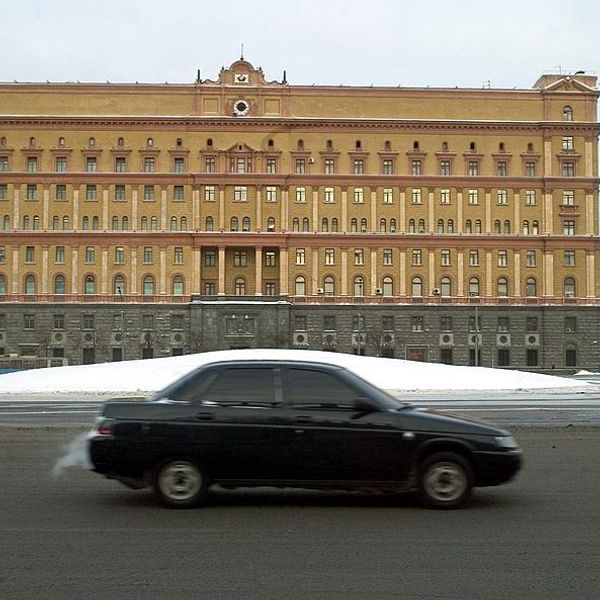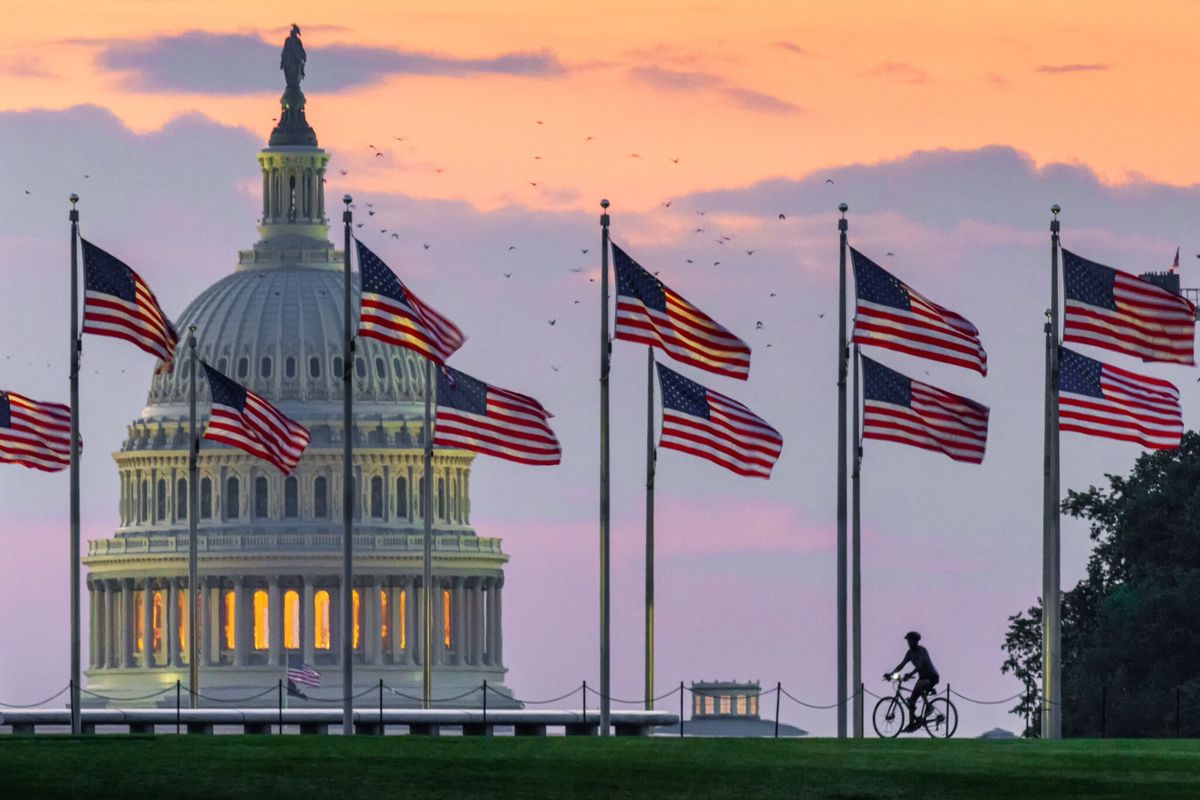There are a couple of key questions we should all have when it comes to the difference of opinion between President-elect Donald Trump and the CIA about whether Russia launched cyber operations with the intention of influencing the outcome of the election. The first thing we really need to know: has President-elect Trump heard the evidence that supports the reported CIA belief that Russia did indeed meddle with the election? He does, unlike the rest of us, have access to that classified information. In fact, that information has been compiled with just one client in mind: the President. We tried to ask his Campaign Manager if the President-elect was given or asked about the evidence, but didn’t get a response.
The other question: what happens if the President decides that he just doesn’t want to believe the evidence, for whatever reason? It’s of course possible that the President-elect is still fundamentally operating in ‘campaign mode’ and assessing the risk of whether it is wise to publically accept the CIA assessment, given that the road to January 20th is still a long one fraught with danger from political opponents.
I thought we’d tap former acting CIA Director John McLaughlin to help think through some of this. He’s served under both Democratic and Republican Administrations and is probably one of the most level-headed, father-like figures the Intelligence Community has ever known.
Suzanne Kelly: It’s interesting that there are several Republican members of Congress who have come out and said themselves that they believe there need to be multiple investigations into some of the activity that Russia has been behind in recent months. I’m wondering if President-elect Trump continues to either not take more frequent intelligence briefings, or dismisses the information out of hand, or what appears to be out of hand, what does an intelligence agency do? Does there come a point where the President’s behavior, once he’s in office, has the potential to become a national security risk?
John McLaughlin: What I would say is that we’ve just come through what I think is a very emotional phase of this controversy. There are some certainties and some uncertainties in all of this. What we know is that on October 7, the Director of National Intelligence and the Secretary of Homeland Security put out a statement publicly saying that with high confidence the IC understands that Russia was seeking to affect our election.
Now, we know that with some certainty, because the intelligence community just doesn’t say “high-confidence” very often – almost never – unless they are on very solid ground. It’s a lesson that was learned during the Iraq WMD controversy – be careful what you say. They have learned that lesson very well.
Now, what’s less certain is exactly what the CIA has said about Russian intentions and motives. I have yet to see, in all of the leaks – and remember we are dealing with leaks – anything that tells me with what confidence the Agency has said that the Russians were favoring Trump, with what authority they are saying that, and whether it was said in a written, finished assessment, whether it was said in a briefing, or whether it was written down by someone who heard a briefing. We don’t know any of that yet.
The thing that’s fairly clear is that the CIA said something, in some form, conveying a conviction by someone knowledgeable in the CIA that Russia was tipping toward Trump in this election. What we have to do now is proceed very dispassionately to understand what are the facts here and with one principle – the goal has nothing to do with changing the past. Whatever has happened has happened. The main objective is to figure out what happened, and what does that mean for the future, and how can we avoid external interference by a foreign power in our future elections.
The President-elect should want that. The congress should want that. The current President should want that.
I think if everyone takes a deep breath, that’s where we ought to be and how we can get through things like the study that the president has commissioned, to be finished by the time he leaves office.
Suzanne: If there was a case where there was a possible conflict of interest, for whatever reason, and Mr. Trump refused to believe assessments he was getting from the IC, would it fall on Congress to do something about that? Is there any power that the Agency has to do anything about this?
John: If the president just continually rejected what the Intelligence Community had to offer, the first thing intelligence officers would do is ask themselves, “Are we communicating this correctly? Is there something we really need to look at in this intelligence?” If they came to the conclusion that they were giving him the best that can be acquired, good stuff, tightly analyzed and well-presented, then there is no fixed mechanism for how you deal with a president who simply rejects it.
President Richard Nixon pretty much did this. Nixon did not spend a lot of time with intelligence and did not take a PDB (Presidential Daily Brief) briefing and so forth. Of course he had Henry Kissinger as his back-up! If that were to happen with Trump, then intelligence agencies would focus on the consumers immediately around the president, beginning with the national security advisor, the deputy national security advisor, the secretary of state, and the secretary of defense. They would simply do that. In the course of their oversight dialogue with the Congress, it would come out at some point that the President isn’t paying much attention to intelligence. Then someone, from presumably his party, would raise it with him.
There is no fixed mechanism, and there is no inspector general or ombudsmen. The bottom line here is the president owns his intelligence community. It’s like owning a car. You can choose not to drive it, or you can drive the heck out of it. Some presidents have driven the heck out of it and others have chosen to leave it in neutral and check on it now and then.
Suzanne: Could there ever be a change in that the intelligence community may end up working more for Congress than for the executive branch if President-elect Trump refuses to accept briefings and doesn’t accept the intelligence provided. Is there precedent for that?
John: No, I wouldn’t see that happening. Certainly it would be the case that if they were ignored, they would pay even more attention to Congress. But ultimately Congress can’t be the action consumer of their intelligence because the President is the Commander-in-Chief. Congress holds the purse strings and therefore it has the oversight responsibilities. They are always interested in what the Intelligence Community knows, how good it is, and whether it is working well. But they’re not going to be the ones sending troops into battle, or to change an executive order affecting foreign affairs, or to initiate a process that unravels the Iran nuclear agreement or the TPP. That’s going to be the president. There really is no substitute for executive branch engagement, is the way I would put it.
It doesn’t have to be the president himself personally every day, but it needs to be someone in the executive branch who’s bringing that intelligence into the Situation Room and into national security deliberations.
Remember I was nominated and confirmed under Clinton and then served one term under Bush, and even in the Clinton era, when the president was not being briefed personally by an intelligence officer every day, the CIA director was briefing in the White House Situation Room at every meeting. So the outlet really is in the national security deliberation process, again, chaired by the national security advisor. And I guess that’s another subject isn’t it? Whether the guy nominated (retired Lieutenant General Michael Flynn) is going to work out or not. We’ll see. Based on all the externals, it doesn’t look good. But give him a chance, who knows. He did a good job in Afghanistan. He’s been criticized so much that maybe he had an epiphany of some sort.
Sometimes people do rise to the occasion. I believe in redemption.
Suzanne: What if President-elect Trump continues to show disregard for information about threats that Russia could be posing, such as interference in our elections? When does it get to a point where people say, “Ok, we have a more serious problem that we don’t have a mechanism built in within government for dealing with this? What do we do now?”
John: I think the mechanism then would be Congress. Congress does hold the purse string. Congress is now governed by a majority of his party, at least his declared party. If that were the case, senior figures in Congress would have to meet with him and come to some agreement about how to move ahead responsibly, because that would just be irresponsible for him to behave that way. And there would probably be people in his cabinet who would also chime in.
If he were to do that, we are of course in uncharted territory, and no one knows where that goes. I think Congress would have to step in at that point and say, “Look, we are going to do this investigation. We are an independent branch of government, and we are going to come to whatever conclusions we are going to come to." And when we do, they will be authoritative.
It remains to be seen whether Congress, with the kind of partisan divide we see in this one, can actually do this. I think they can, but this could also ultimately be something to be looked at by an independent group of wise men and women, not exactly a 9/11 commission panel, but, if you remember, President Obama, when the surveillance controversy was raging, put together a small panel of people who were private citizens for the most part and who had some standing to say what actually is going on here, and what should we change and what we should not change.
Suzanne: What signal does this send to the rest of the world, including both our allies and adversaries?
John: They are already scratching their heads bald about what is going on here, so I don’t think we can confuse them any more.
















